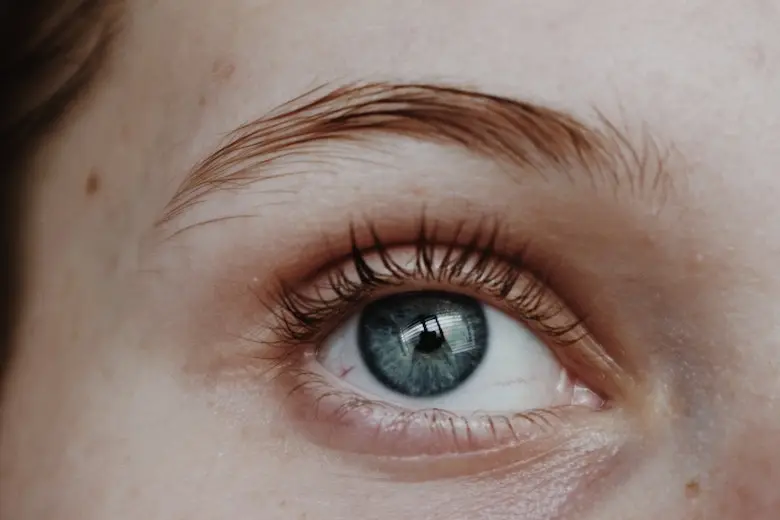Ever catch your reflection and think, “Wait, weren’t my eyelashes fuller, like, yesterday?” Yeah, we’ve all been there.
Eyelashes do more than just make our eyes pop; they serve as mini umbrellas for our eyes, keeping out dust, debris, and sweat. And, when they start to fall out or thin, it can be both a cosmetic and a health concern.
So what causes lass losh, and how can we prevent that?
In this post, we’ll explore why eyelashes might decide to part ways with your eyelids, how to tell if it’s a normal part of the aging process or a sign of something more serious, and what you can do to either prevent or remedy the situation.

Table of Contents
Is Eyelash Loss Normal?
So, you’ve noticed your eyelashes are thinning out a bit, and it’s causing you some concern. Take a deep breath; it’s a more common experience than you might think. The first thing you need to understand is that some amount of lash loss is perfectly normal. Eyelashes have a life cycle just like the hair on your head. They grow, rest, and eventually fall out to make room for new ones.
But how many eyelashes do you lose a day, and what amount is normal? Statistically speaking, most people lose 1 to 5 eyelashes a day. If you’re within this range, you’re probably fine. But if you notice clusters of eyelashes falling out, gaps in your lash line, or other changes like redness or irritation, it might be a red flag that something else is going on.
Common misconceptions? Some people think that losing eyelashes means they’re deficient in some essential nutrients or that they’re getting old. While age and nutrition can play a role, they’re not the only factors. So, before you start gobbling down vitamins or considering fake eyelashes, let’s look at the real reasons your eyelashes are falling off.
Causes of Eyelash Loss
Natural Causes
Alright, let’s kick things off by talking about the natural causes behind eyelash loss. We touched on this earlier: Eyelashes have a growth cycle. They grow, they chill for a bit (this is technically called the “resting phase”), and then they make their exit. So yes, some amount of lash loss is as natural as leaves falling in autumn. But what about age? It’s true; as we get older, our hair—including our eyelashes—tends to thin out. But it’s just one piece of a much bigger puzzle.
Medical Causes
There are some medical conditions that can cause your eyelashes to pack up and leave. If you’ve ruled out natural causes and you’re still concerned, you might want to look into conditions like Alopecia Areata, an autoimmune disorder, or Blepharitis, which is inflammation of the eyelids.
Hormonal imbalances can also make your lashes less luscious, as can some medications, like chemotherapy drugs. When in doubt, consult your healthcare professional for a proper diagnosis.
Lifestyle Factors
But let’s not forget about lifestyle; the way you live can directly impact the health of your lashes. For instance, a poor diet lacking essential nutrients can lead to weaker, more brittle lashes.
Stress is another big factor; it messes with a lot of things in your body, including hair growth.
Then there’s mechanical damage: going overboard with the eyelash curler and rubbing your eyelashes leads to lash loss.
And, of course, there are cosmetics. While mascara and eyeliner can make your eyes look stunning, improper use or not removing them properly can also cause your lashes to fall off.
Solutions and Treatments for Eyelash Loss
Medical Treatments
If you’ve had enough of shedding lashes and you’re ready to take action, one route is medical treatment. Prescription medications like Latisse have gained popularity for their ability to stimulate lash growth. Topical ointments might also help, especially if you’re dealing with an underlying skin condition around the eyelids. And for hormonal imbalances affecting lash growth, hormone therapy might be an option.
But remember, always consult a healthcare professional for a treatment plan tailored to your needs.
Natural Remedies
If you prefer to go the natural route, there are options for you too. Olive oil and castor oil have gained a reputation as lash enhancers. Simply apply a small amount to your lashes before bed and let it work its magic. Some people also swear by vitamin supplements that promote hair growth. But like any remedy, natural doesn’t always mean safe or effective for everyone, so do your homework.
Lifestyle Changes
You might also tackle eyelash loss through lifestyle changes. A diet rich in vitamins and minerals that promote hair growth can be beneficial. Stress management is another area to explore; techniques like meditation or exercise can positively affect your overall health, including that of your lashes.
For the beauty aficionados, switching to hypoallergenic makeup or using a gentle makeup remover can make a world of difference in lash health.











Leave a Reply